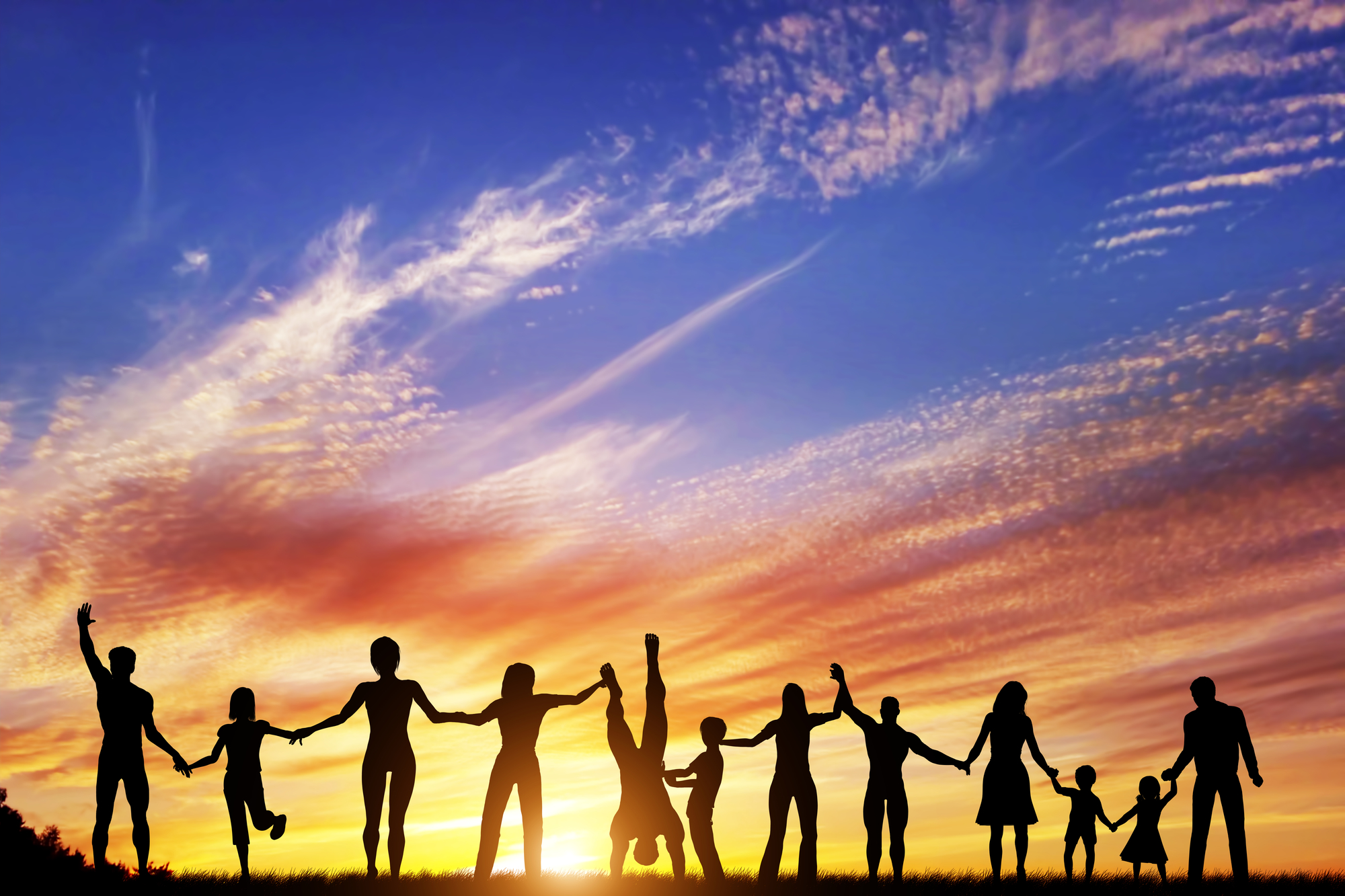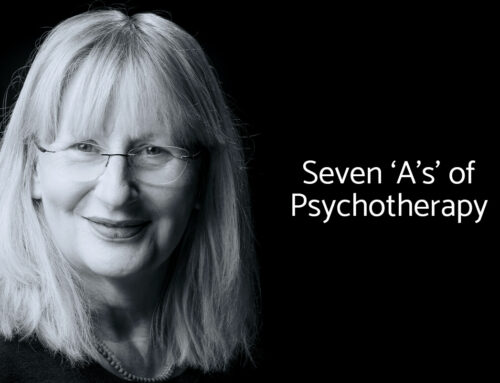Some reflections about inequality and oppression within our society,
from the perspective of a psychotherapist
The term anti-discriminatory practice has been used to describe the ethical intention to provide equal value, respect and skilled professional attention to all types of client in counselling and psychotherapy. Yet the term anti-oppressive practice more accurately reflects what I experience in my day to day work, because so many people who come to psychotherapy as clients are struggling with something that makes them feel different. Because they feel different, they automatically assume they are in some way less than others who are not different.
Some thoughts about inequality
Inequalities exist in our society, and we are all familiar with discussions about prejudices and assumptions on the basis of appearance, gender, race, religion, weight, age and sexuality, social class, wealth and privilege. There are also countless other differences, many which are not visible to the eye -such as hidden disabilities and impairments, dyslexia, grief and loss, mental health issues, sexual identity that goes unstated, being a survivor of abuse or trauma, being separated from your family… and complex social issues such as the experience of parents whose children undergo radical changes in identity.
People who do not feel they belong can more easily recognise the bias towards unawareness demonstrated by those who believe they do belong to the majority. Those who are different are automatically perceived as not one of us or not as not as good as us. These perceptions are based on tradition, social norms, fear of change, fear and hate of difference, and the projection of despised qualities onto a generic group of others. Strangers and foreigners to the group, those who look and behave differently, are regarded as a threat, or perhaps as an exotic curiosity. How many times do well-meaning straight friends mention the sexuality of a gay friend or colleague, as though gayness is what identifies or defines them as a marker of difference. They do not refer to the sexuality of heterosexual people in the same way.
Some people use traditional texts to justify beliefs that one form of lifestyle is more desirable than another, to do with how we were created by a narrow-minded God – yet the evidence in the wild, in nature, is for staggering variety, variation and diversity. As we are only slowly coming to understand, that the massive variations, diversity and differences within nature and natural habitats are crucially important, and as many are now disappearing, we are only slowly beginning to understand the true impact of their loss upon the quality of life across the planet.
How can you be sure that a therapist will regard you as an equal and is not holding hidden judgements or prejudices which could damage you?
In psychotherapy, all people are welcomed, but the therapist will have her own life experiences and biases which may or may not have been consciously explored in the areas that directly affect you. A therapist may say she is completely open minded and unprejudiced, but is this based upon real soul searching and experience? The psychotherapist herself may occupy a position of privilege in certain areas in relation to you, and you may both feel this – but is it something that can be sensitively addresses in the work, or is it avoided?
Difficulties might include the therapist never mentioning the differences between you, or glossing over them as though they are not important; she might make assumptions that are unhelpful or irrelevant, showing a lack of understanding of your cultural context. She might be reluctant to ask you about aspects of your life she does not know about or understand. Because you are used to this, it could be something you feel you have to accept in therapy. You do not want to feel you have to justify or explain the way you are.
The problems of unconscious bias in counselling and psychotherapy have been partially addressed by the training and employment of more minority counsellors and psychotherapists – the idea being that if you belong to a minority, you need a therapist from the same background – for example, clients working on issues of transgender should work with transgendered therapists. I do not feel this addresses the problems of difference in psychotherapy – surely with each and every client we need to start afresh, with as few assumptions as possible, and be open to learn from the client all that we do not know or understand about their lives and their experiences. There is a huge bridge that any two people have to step across to be really open to meet the experience of the other person, even if that person looks like us on the outside. Each person is so unique as to be like an entire country in their own right.
The idea of oppression, rather than discrimination, points to underlying and all-pervasive aspects of inequality and the long-term persistence of social traditions that privilege one type of person above others. This allows for the fact that those who enact oppressions upon others are equally themselves oppressed. Take the idea of a husband taking his wife’s family name on marriage. This is still a radical and shocking idea to many. The social, legal and religious tradition that women take their husband’s names is partly based upon old systems of inheritance and ownership, whereby women and their property were owned by the husband, in the way that we own pets today. Yet many women are happy with this tradition, and do not stop to question it, as it may somehow infer “benefits of belonging” to the husband.
One husband who took his wife’s name upon marriage is reported as saying a lot of men have been angered by his choice, and this has led to vicious criticism by men who feel this is emasculating. He says he was surprised by how much work it took to change his name, something that women have always done and comments on this that “when you’re accustomed to privilege, equality feels like oppression”. If in a marriage of equal parties who both work full time, one person feels obligated to do all of the housework while the other refuses to contribute when asked, this is regarded as an acceptably normal situation. There is an unwritten contract that women do most of the housework, whether or not they have other responsibilities. In many households, it appears it is impossible to change this, and no matter how many times the woman requests she wants help with the housework, it is regarded by the husband as her domain. The argument can be used that the husband is earning more and his time is more valuable, so he needs time off when he is at home. However, there is also the reality of the gender pay gap and the fact that when women take time off work to look after children this reduces their earning capacity throughout the rest of their life, not just at the time. If this is not a form of systemic inequality that demonstrates an underlying oppression, how else can it be understood? I am not talking about situations where the woman has voluntarily taken on the role of house mother and is happy to do it. For some men, perhaps, engaging in household tasks is still seen as feminine, or at least non-masculine, and avoiding housework is a way of maintaining a clear gender definition which is needed to support a sense of self.
Only you have the right to state who and what you are, and a label that describes an aspect of you in someone else’s eyes can never define you… but it can nevertheless make you feel diminished.
Belonging to a minority brings challenges not only because other people are unable to accept you – they also cannot see or hear you for who you really are. These problems are enormous. They mean that you cannot walk down the street hand in hand with your partner, the heritage of your children is openly discussed in public, people suffering from mental health difficulties are afraid to go to their doctors as they cannot afford for this to appear on their heath records, your particular physical or dietary requirements are addressed rudely or ignored, you give up telling people about your hearing impairment because they constantly “forget” your need to lip read, you cannot attend a family wedding or funeral because other family members will not accept you or your children; not to mention that you can be killed on an ordinary local street while you are going about your daily life because someone does not like your religious beliefs, lifestyle or what you look like.
Can psychotherapy bring value to this discussion?
If psychotherapy is to offer value to society it surely must offer its unique skill set to everyone, regardless of all forms of identity, and with the systemic awareness that everyone experiences and is shaped by oppression, whether directly or indirectly. Most psychotherapists make the effort to do this, as this awareness is built in to all modern trainings. Psychotherapists are aware of the importance of the power differential in the relationship and the lack of equality when one person reveals their personal life issues and the other does not, and are trained to work with this sensitively without exploitation. All participants are treated with equal respect.
Psychotherapy can be a rare place where you can experience a special privilege of being honoured and respected as a unique individual and where you are seen for who you actually are. As a society we still have a long way to go before we treat all other beings as beloved family members – but this is the kind of situation where it can begin, with small groups of people meeting in honour and respect, without recourse to dogma but subscribing to universal values of the brotherhood of man
MLK said this so much more eloquently back in 1963, “We hold these things to be self-evident” that all men are created equal. Yet it always has to be those who are treated as less than equal who have to be the ones to stand up and say this, at their own risk. Or as MLK Jr said in 1967, “This I deem to be the privilege and the burden of all of us who seem ourselves bound by allegiances and loyalties which are broader and deeper than nationalism. We are called to speak for the weak, the voiceless, for the victims of our nation and for those it calls ‘enemy’, for no document from human hand can make these humans any less than our brothers.”
When someone brings the feeling of being “less than” or of being marginalised, rejected or unseen to therapy, there is the potential for this to be witnessed and challenged, and for work to be done to strengthen and encourage the person to stand up proud within themselves. If your therapist does not witness you fully and accurately, point this out to her so that she can learn from you. This work is done in private, so that you can be better prepared to meet the conditions of your life with strength, determination and courage.




